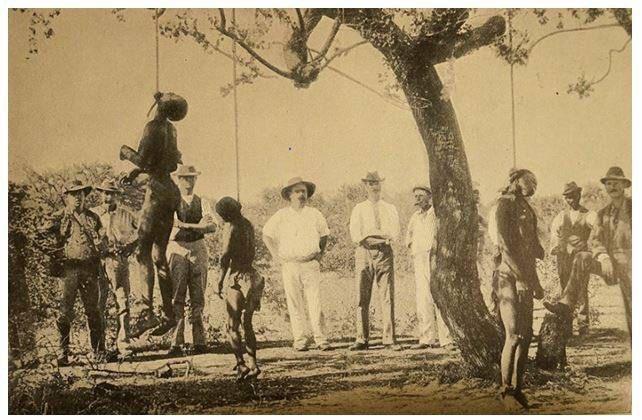News / National
'Zimbabwe police and Zanu-PF lead in rights violations'
17 Sep 2024 at 05:43hrs |
0 Views

A recent report by the Zimbabwe Peace Project (ZPP) reveals a troubling surge in human rights violations across the country, with at least 213 documented incidents of harassment, intimidation, and unlawful detention. The report, covering August, highlights the roles of various perpetrators, with police and the ruling Zanu PF party being the most significant offenders.
According to the ZPP's August Monthly Monitoring Report, the Zimbabwe Republic Police accounted for nearly 40% of the reported human rights abuses, while the Zanu PF party was involved in about 26% of the breaches. Other major perpetrators include the Zimbabwe National Army (11.89%), municipal police (10.01%), State security agents (3.75%), and traditional leaders (2.75%).
The report notes an alarming rise in political polarization, violence, and human rights abuses, largely attributed to political party affiliates and State institutions. The high incidence of violations by State security agents is linked to a widespread crackdown on dissent, including unlawful arrests, arbitrary detention, and torture.
"The Zimbabwe Republic Police constituted 39.4% of the perpetrators, while Zanu PF-affiliated perpetrators amounted to 25.91%," the report states. Other violators include members of the Citizens Coalition for Change (1.63%), government officials (1.5%), members of Forever Associates Zimbabwe (0.75%), and war veterans (0.38%). Two percent of the perpetrators could not be identified with any specific group.
ZPP condemned the targeted repression of human rights defenders and the increasing use of violence-threatening language by government officials. The organization criticized the government's commitment to human rights, highlighting systematic and public attacks on human rights defenders, particularly in August, ahead of the Sadc summit.
"Top government officials have publicly denigrated human rights defenders, political figures, and civil society organizations, creating a hostile environment that emboldens violence and repression," ZPP stated.
In response to the report, National Police Spokesperson Commissioner Paul Nyathi expressed a lack of awareness regarding the ZPP's findings. He urged the organization to share the report with the police for further investigation and to aid in making informed decisions on human rights issues.
On International Day of Democracy, Heal Zimbabwe Trust echoed concerns about the deteriorating human rights situation. The organization highlighted ongoing government crackdowns on opposition voices, arrests, arbitrary detention, and torture, emphasizing the erosion of trust in democratic institutions and processes.
"The day comes on the back of a national crackdown on opposition and pro-democracy voices towards the just-ended Sadc summit that saw government critics arrested, abducted, detained, and threatened over the right to peaceful protest," Heal Zimbabwe Trust stated.
The organization called for the Zimbabwean government to embrace technology and artificial intelligence to enhance citizen participation in governance and improve human rights literacy. They also urged for an end to human rights violations, the strengthening of national institutions, and the restoration of citizen trust in democratic processes.
"Heal Zimbabwe Trust remains committed to advocating for positive peace, respect for human rights, and strong institutions in pursuit of a democratic and inclusively prosperous Zimbabwe," the statement concluded.
According to the ZPP's August Monthly Monitoring Report, the Zimbabwe Republic Police accounted for nearly 40% of the reported human rights abuses, while the Zanu PF party was involved in about 26% of the breaches. Other major perpetrators include the Zimbabwe National Army (11.89%), municipal police (10.01%), State security agents (3.75%), and traditional leaders (2.75%).
The report notes an alarming rise in political polarization, violence, and human rights abuses, largely attributed to political party affiliates and State institutions. The high incidence of violations by State security agents is linked to a widespread crackdown on dissent, including unlawful arrests, arbitrary detention, and torture.
"The Zimbabwe Republic Police constituted 39.4% of the perpetrators, while Zanu PF-affiliated perpetrators amounted to 25.91%," the report states. Other violators include members of the Citizens Coalition for Change (1.63%), government officials (1.5%), members of Forever Associates Zimbabwe (0.75%), and war veterans (0.38%). Two percent of the perpetrators could not be identified with any specific group.
ZPP condemned the targeted repression of human rights defenders and the increasing use of violence-threatening language by government officials. The organization criticized the government's commitment to human rights, highlighting systematic and public attacks on human rights defenders, particularly in August, ahead of the Sadc summit.
"Top government officials have publicly denigrated human rights defenders, political figures, and civil society organizations, creating a hostile environment that emboldens violence and repression," ZPP stated.
In response to the report, National Police Spokesperson Commissioner Paul Nyathi expressed a lack of awareness regarding the ZPP's findings. He urged the organization to share the report with the police for further investigation and to aid in making informed decisions on human rights issues.
On International Day of Democracy, Heal Zimbabwe Trust echoed concerns about the deteriorating human rights situation. The organization highlighted ongoing government crackdowns on opposition voices, arrests, arbitrary detention, and torture, emphasizing the erosion of trust in democratic institutions and processes.
"The day comes on the back of a national crackdown on opposition and pro-democracy voices towards the just-ended Sadc summit that saw government critics arrested, abducted, detained, and threatened over the right to peaceful protest," Heal Zimbabwe Trust stated.
The organization called for the Zimbabwean government to embrace technology and artificial intelligence to enhance citizen participation in governance and improve human rights literacy. They also urged for an end to human rights violations, the strengthening of national institutions, and the restoration of citizen trust in democratic processes.
"Heal Zimbabwe Trust remains committed to advocating for positive peace, respect for human rights, and strong institutions in pursuit of a democratic and inclusively prosperous Zimbabwe," the statement concluded.
Source - newsday
Join the discussion
Loading comments…




































